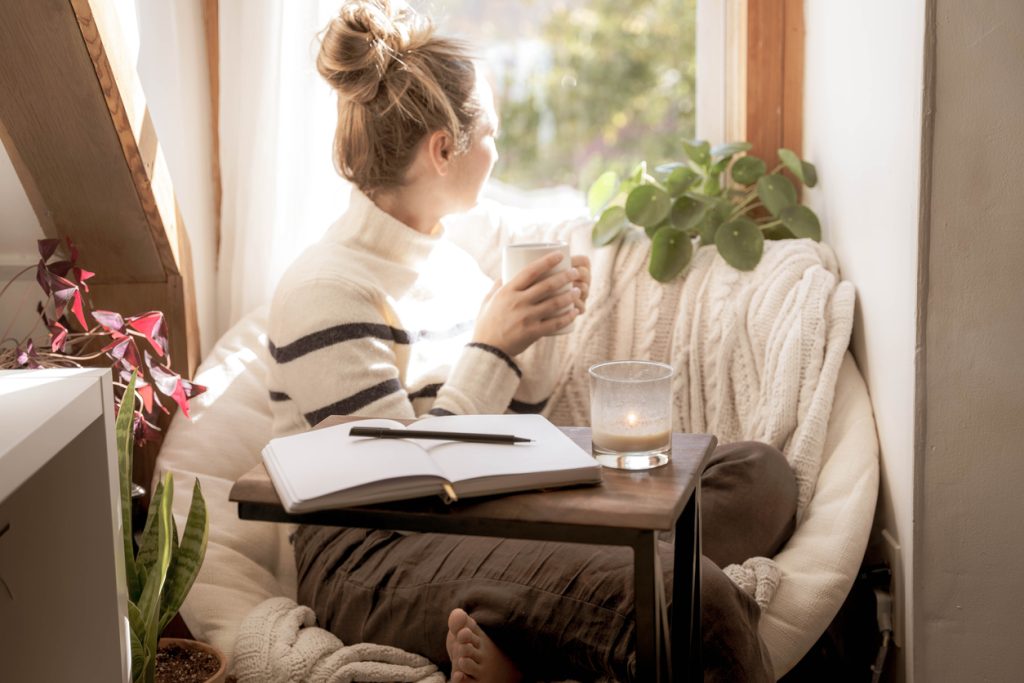
The concept of cosy living has become a beacon of serenity in our fast-paced, often stressful modern lifestyles. In this article we will delve deeper into why cosy living is not just a trend, but a beneficial practice for mental health, integrating psychological principles, lifestyle considerations, and cultural insights.

The Deep Roots of Cos Living
At its core, cosy living is about creating a sense of comfort, warmth, and contentment. These elements are crucial for mental and emotional well-being. Psychologists point out that environments which make us feel safe, nurturing, and comforting can significantly reduce stress and anxiety levels. In cosy living, this is often achieved through soft textures, warm lighting, and comfortable seating! The sensory experience in such environments can trigger a relaxation response in the brain, reducing cortisol levels, the hormone associated with stress, and enhancing feelings of calm and security.

Mindfulness and Presence: The heart of cosy living
One of the key aspects of cosy living is its encouragement of mindfulness and being fully present in the moment. Engaging in simple pleasures like savouring a warm drink, reading a book by the fireplace, or enjoying the softness of a well-worn blanket allows individuals to focus on the present moment. This practice is known to have therapeutic effects, reducing symptoms of anxiety and depression. It helps individuals to disconnect from the relentless pace and distractions of the digital world, providing a much-needed mental respite and fostering a state of peacefulness.

Building social connections in a cosy environment
While it can be a solitary affair, it often includes a social dimension, such as small, intimate gatherings or shared meals in a snug setting. These interactions, set within a comfortable and inviting atmosphere, can enhance relationships and provide emotional support. Strong social connections are the cornerstone of good mental health, offering a sense of belonging and support, particularly during challenging times.

Self-care and personal enjoyment
Cosy living is also about embracing personal joys and engaging in self-care. Whether it’s pursuing a hobby, cooking a comforting meal, or simply lounging in your favourite pj’s on the sofa, these activities are acts of self-care that contribute to mood enhancement and overall happiness. Prioritizing personal enjoyment and dedicating time to self-care is crucial for maintaining a balanced mental state and preventing burnout.

The influence on sleep and relaxation
The environment fostered by cosy living is conducive to relaxation and improved sleep quality. Good sleep is fundamental for mental health, influencing mood regulation, cognitive function, and resilience to stress. A cosy bedroom, characterised by comfortable bedding, soft lighting, and a tranquil atmosphere, can significantly improve the quality of sleep, contributing to better mental health outcomes.

Creating a personal sanctuary for mental health
Cosy living encourages the creation of a personal sanctuary, a space where induvial retreat from the external world’s pressures and stressors. This personal sanctuary becomes a place of comfort and security, offering a refuge for mental and emotional rejuvenation.

Global perspectives on cosy living
Interestingly, the concept of cosy living transcends cultures, with various interpretations around the world. In Japan, the principle of “wabi-sabi” embraces imperfection and simplicity, creating a serene environment. The Scandinavian design focuses on minimalism and functionality, offering a different but equally comforting take on cosy living.
Cosy living, with its emphasis on creating a nurturing environment, practising mindfulness, and indulging in personal joys, offers profound benefits for mental health. It repeats a counterbalance to a hectic, often impersonal modern lifestyle. As society continues to grapple with increasing stress and digital overload, the principles of cosy living shine as a beacon of hope, highlighting the essential human need for comfort, connection and tranquillity in our daily lives.


